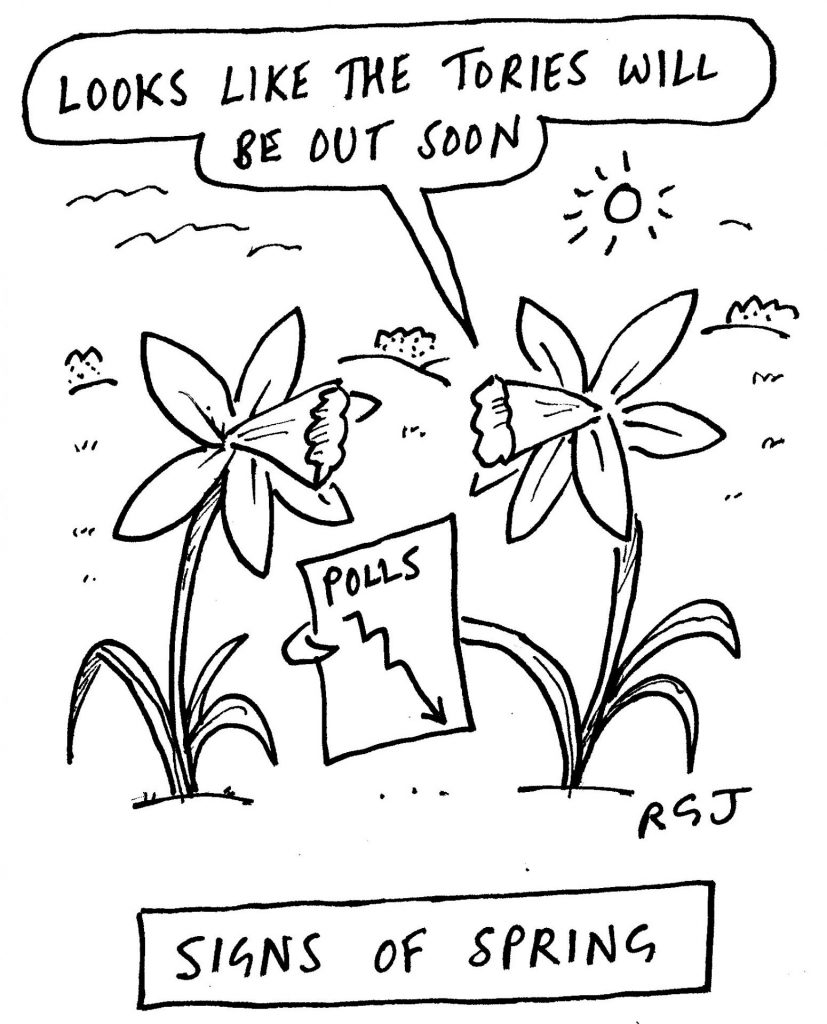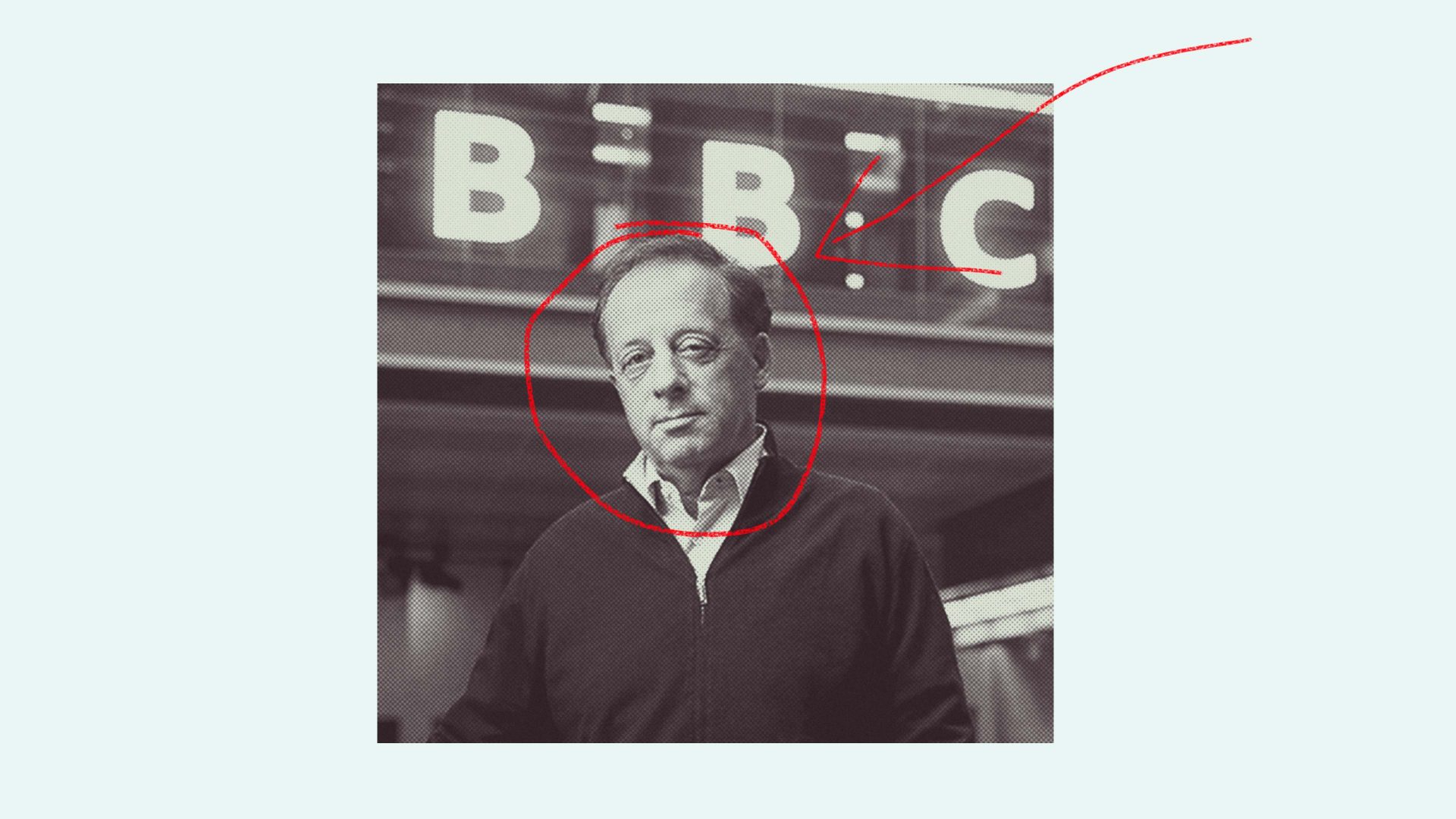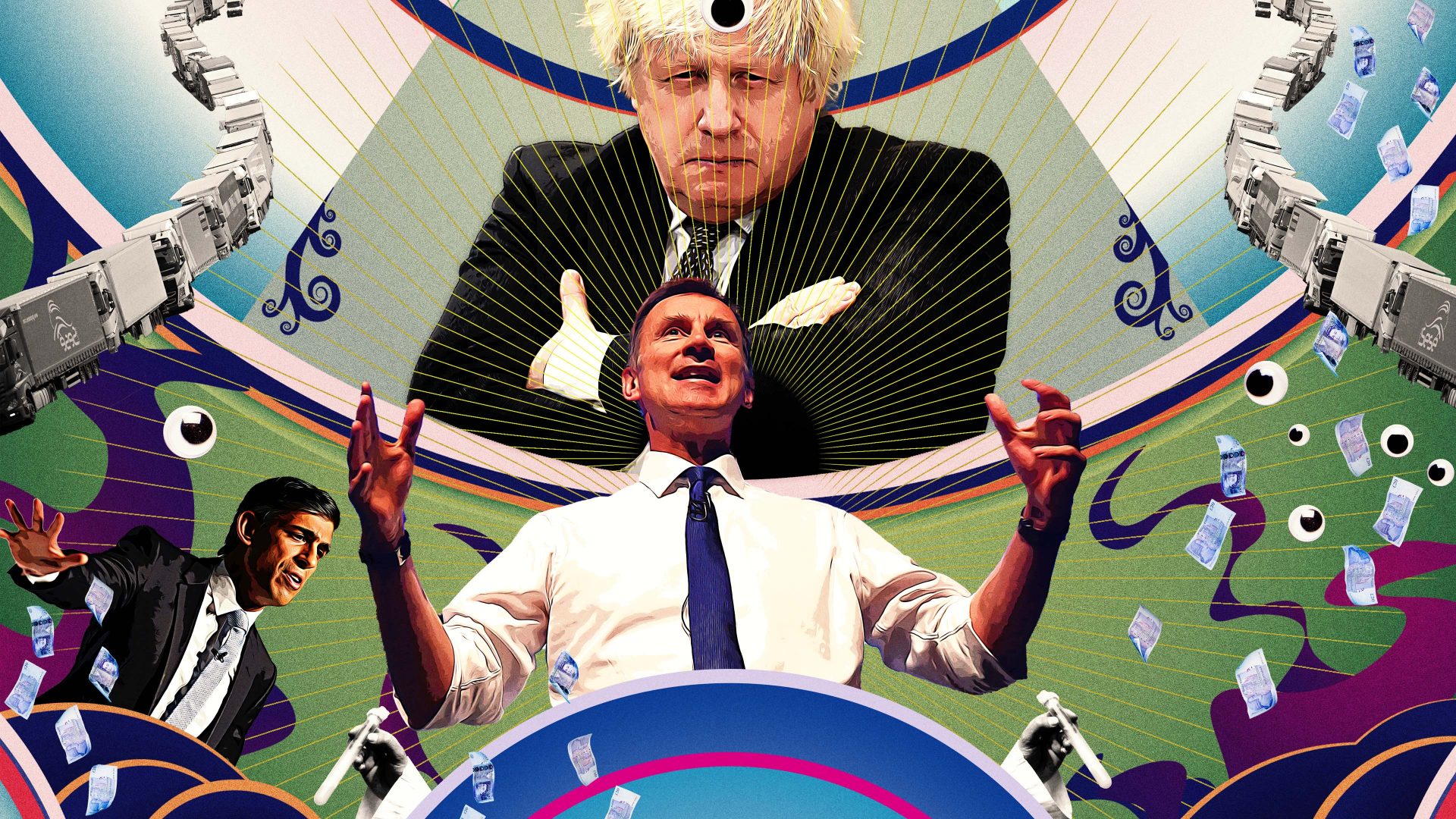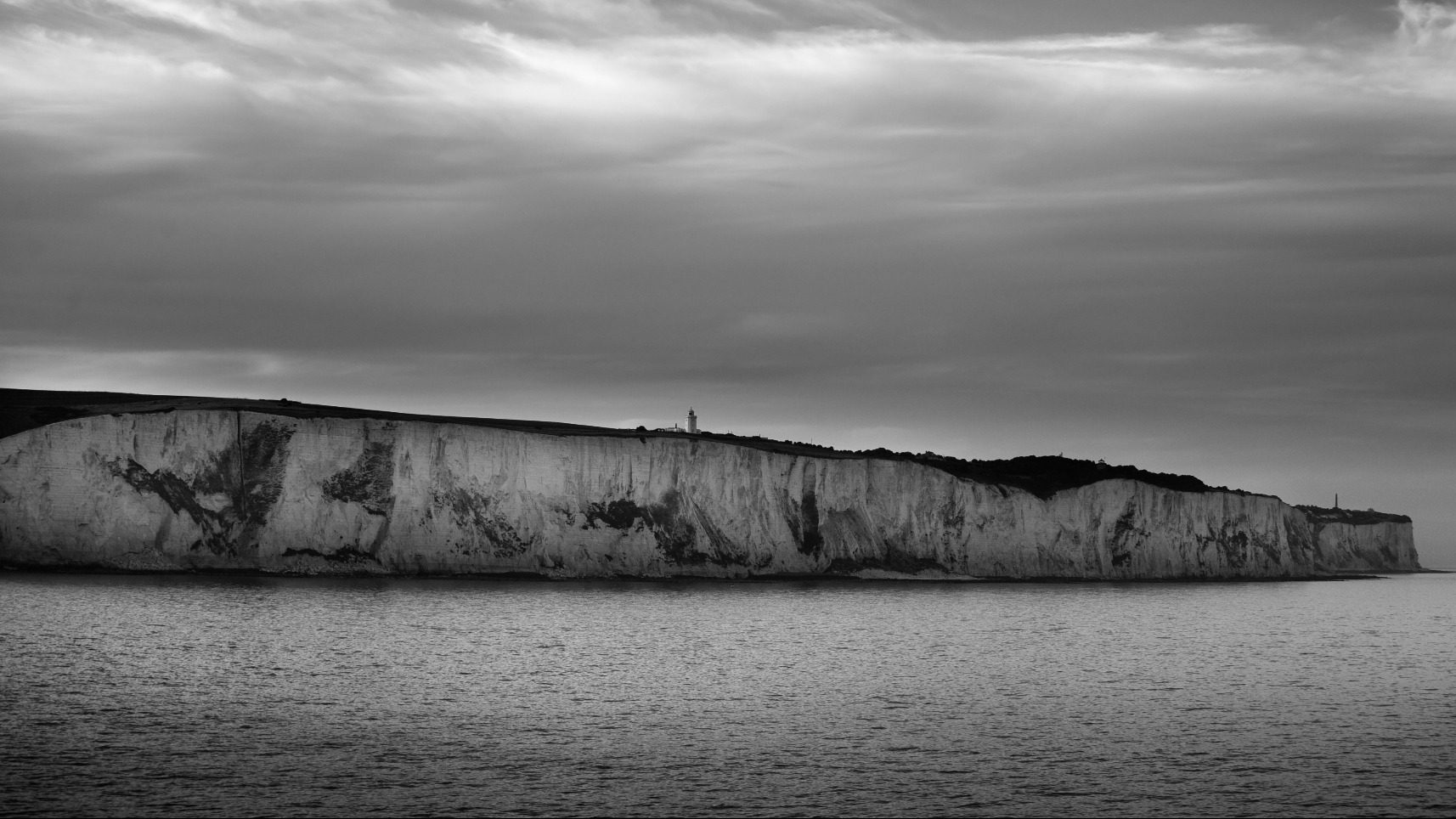So according to the Daily “Hurrah For the Blackshirts” Mail, my support for Gary Lineker in recent weeks is “tainted” by the fact that his company – Goalhanger, geddit? – produces my podcast. A gaggle of Tory-Ukip MPs was wound up to fulminate about the tainting, Lee Anderson leading the charge, in between doing an interview essentially saying that because the Tories have no record to defend, and no plan for the future, they will have to make the next election all about “culture wars and trans”. I suppose he is honest, about that at least.
No doubt partly because Der Dacre-Stürmer was keen to make my Lineker podcast connection more widely known (despite it never having been hidden) several of the broadcasters, including the BBC, felt they had to mention the taint when introducing me to their viewers and listeners. “We are now joined by Alastair Campbell, and we should make clear that his podcast, The Rest Is Politics, is produced by Gary Lineker’s company.”
The purpose, in putting the taint up front, is to suggest that anything I say thereafter is born of a personal or commercial interest, not a sincerely held view. Yet surely on this logic, whenever the Mail is mentioned, in the BBC review of the papers for example, it would be appropriate for the presenter to say something like… “The Mail’s front page has a picture of Boris Johnson and Suella Braverman dancing a jig as a plane load of refugees sets off for Rwanda, but we should point out that the paper is run by someone Johnson is seeking to put in the House of Lords in his resignation honours list, the first attempt having been blocked by the Appointments Committee.”
Likewise, if the Goalhanger taint has to be part of my new intro, surely the BBC should consistently point out to viewers and listeners that the corporation is chaired by a Tory donor who helped to fix a huge loan for Johnson, who was at the time in the process of deciding who the next BBC chairman should be.
Talking of double standards, I am sure you will have noticed that Lineker’s home in Barnes had media outside round the clock as the recent row raged, in order to capture his every move and his every word. One of the papers even did a big piece on the different shoes he wore on each of the days he was doorstepped.
Does anyone know where said BBC chairman and Tory loan-fixer Richard Sharp lives, let alone where he gets his shoes? Has anyone seen him with a camera or a mic in his face? Have we heard a single “no comment” fall from his lips? No. Because the media has decided that though he is a part of the story, they will all pretend he is not.
As with everything else in Tory Britain, there is one rule for them, and another for everyone else.

Sharp, and his political master “Sir” Robbie Gibb, must have been delighted that the aerial shots of the massive budget day protest march by striking public-sector workers were not deemed newsworthy by our main broadcasters, and that it took the German TV station ZDF, using the pooled pictures, to bring the scale of the protests to the attention of the British public via social media.
Do you remember when Rishi Sunak secured the Windsor Framework? His convoy was heli-followed all the way back to London as commentators and Tory MPs provided a voiceover of breathless excitement at the breaking news that Sunak was not as totally useless as Johnson and Liz Truss, and had done something reasonably useful.
Shock news: PM does job without being a twat 24/7 – send up the chopper. Strikes and protests – nah mate, nothing to see.
Sticking with media bias, the Daily “Once-was-a-real-newspaper” Telegraph had a collector’s item splash headline two days after the budget: “Labour’s pension tax raid plan will ‘hit millions’”. The sub-head reported that the pensions industry had been “thrown into turmoil”, while “senior Tories” lined up to condemn Labour for waging “class war”.
What you would struggle to find in the story was any hint that 48 hours earlier, the tax raid plan under such vehement attack had been long-term Tory government policy. Among the Tories quoted was Iain Duncan-Smith, who somewhat gave the game away by saying: “Labour have taken the bait”.
Policy is now devised not according to economic or social needs, but as part of an attempt to lay traps for Labour. And of course, the Tories can always rely on the Once-was-a-real-paper and several others to dig them.
Similarly, it seems the BBC, the Independent, the Daily Mirror and the Guardian were not invited on Suella Braverman’s weekend trip to Rwanda. GB News, the Mail, Express, Telegraph and Times on the other hand…
I wonder whether any of them saw fit to look into the death of a Rwandan journalist called John Williams Ntwali, with 86 organisations calling for an independent investigation. Or were the temptations of drinks and nibbles with Suella just too strong?
In other news you are unlikely to hear from the Suella PR machine and its client journalists, Rwanda has so far picked up £140m for the deportation scheme, and at the time of her departure the number of asylum seekers sent there from the UK was… zero.
Some of the best advances in the battle to destigmatise mental health have come from TV dramas and soap operas. So I was delighted to chair a panel of producers, writers, actors and a representative of the charity Mind to discuss “taboos on TV” and explore the challenges of dealing with mental health storylines. It was hosted by ITV, but had BBC people both on the panel and in the audience, and so I was gently asked not to get too political, given the “current sensitivities”.
So, apart from the occasional plea to “Free Gary”, and an angry reference to the government cutting funding to the Time to Change campaign, I was broadly obedient.
Alex Bushill from Mind felt there were a couple of remaining taboos though – portrayal of the most serious mental illnesses like schizophrenia, and the exposing in drama of the disjunction between rising demand and worsening services.
I first met the film-maker Hugh Hudson when interviewing Neil Kinnock for the 1987 election broadcast that became known as “Kinnock the Movie”, which at the time, thanks to Hugh’s brilliance, set new standards for the party election broadcast genre.
Of course, he was better known as the director of Oscar-winning Chariots of Fire, and there were many references to the film at his funeral in Chelsea last week. One of the readings, read by Chariots actor Nicholas Farrell, was of an Eric Liddell speech from the film.
A wonderful piece of music was played, written by Chariots composer Vangelis as a tribute to Chariots actor Sir Ian Holm, alas also now resting in peace. We had Jerusalem, as did the film. Nigel Havers, another of the Chariots actors, did the main tribute, but within the confines of a rather unusual line in Hugh’s will – an insistence that there should not be a eulogy at his funeral.
So instead, several times insisting that “this is not a eulogy”, Havers read out a selection of letters sent recently to Hugh’s wife, Maryam, after he died. Neil and I, sitting together in the church, agreed this could be a wonderful time-saving device in future. We both regularly get asked to do eulogies.
The “no eulogy” desire obviously ran deep with Hugh. Havers revealed that they had discussed it many years ago when they were driving to a friend’s funeral. “While we are on funeral arrangements,” Havers then asked him, “do you want to be cremated or buried?”
“Surprise me,” came the reply.




